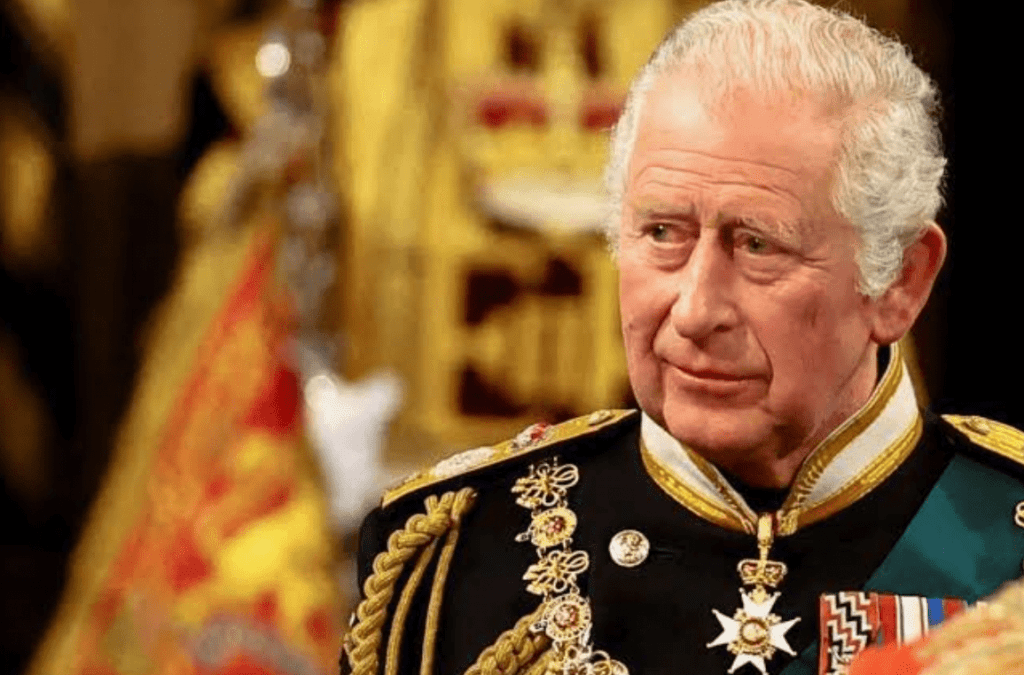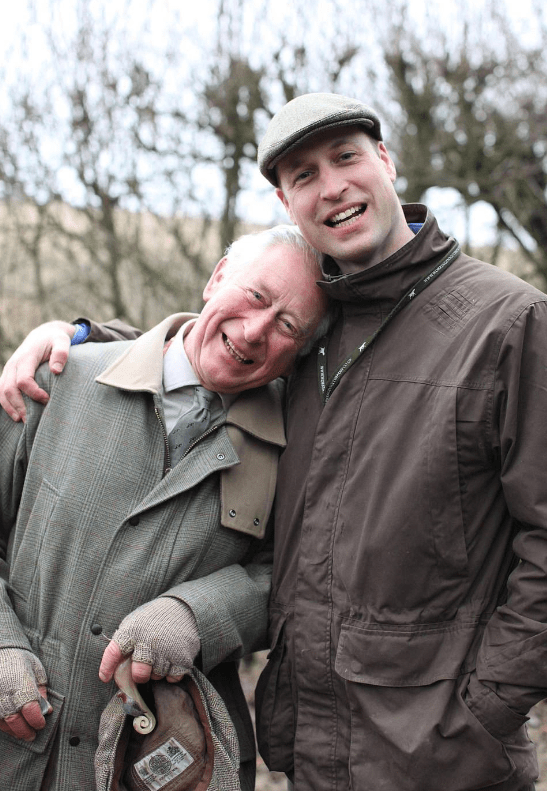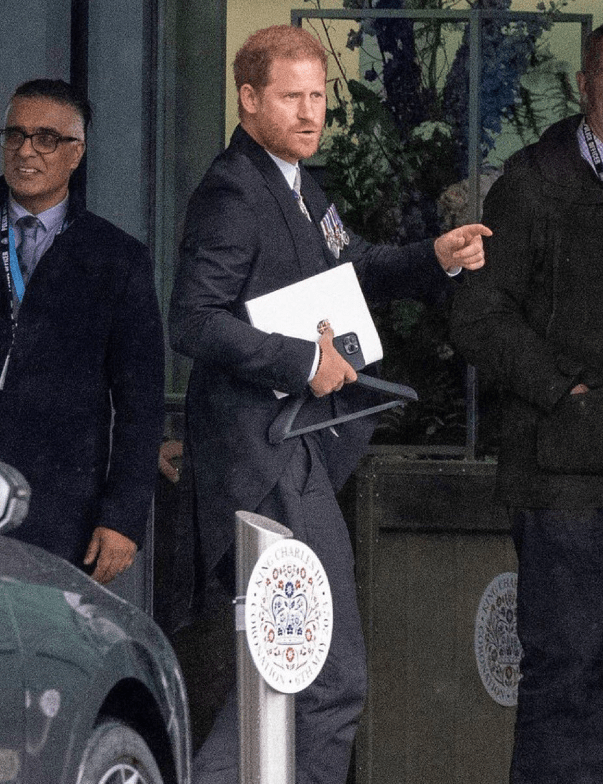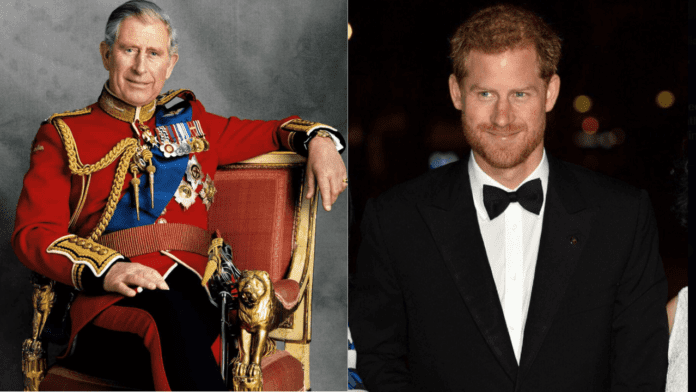King Charles III’s illness has brought pressure to light at Buckingham Palace. London King Charles III’s cancer diagnosis has put more strain on the British monarchy, which is still changing even after the late Queen Elizabeth II’s 70-year reign.
In Short
Seventeen months ago, when Charles ascended as the heir to his mother, his task was to demonstrate that a thousand-year-old institution has become relevant in a modern nation, with citizens from all corners of the world. Now, as the king, who turned 75 in November, he will lead the effort during his cancer treatment.
King Charles diagnosed with an unspecified type of cancer
Buckingham Palace announced on Monday that King Charles has been diagnosed with an unspecified type of cancer. The king will not be appearing in public as much, but he still plans to fulfill his royal duties, such as meeting with the prime minister and going over official documents.

While royal experts say the diagnosis is unlikely to destabilize Windsor House, significant pressure has emerged.
Here’s a look at the major challenges facing the royal family
King Charles waited nearly 74 years to become king – longer than any previous heir apparent. Now, at a time when most of his contemporaries have retired, King Charles has less than two years to stamp his mark on the monarchy.
If I didn't know better I would think #PrinceHarry is the future King they way the British Media keeps going on & on about him
— 🅳🅷🅰🆁🅶🅷🅰🅽 (@Dharghan_) February 6, 2024
From whether he'll visit his sick father the King to how much Royal duties he'll take on, despite having told them he's done with that life. pic.twitter.com/u2ui9z3hMk
While the duties of a constitutional emperor are largely ceremonial, the royal whirlwind can be exhausting. Apart from occasional processions in full royal regalia, there are also meetings with political leaders, dedication ceremonies, and events honoring the achievements of British citizens. During his first year on the throne, Charles’ schedule included 161 days of royal engagements.
The pressure on the elderly king is not just for Charles. Queen Margrethe of Denmark handed over her throne to her son Frederick last month, becoming the first Danish monarch to abdicate in nearly 900 years. The 83-year-old Margrethe had always said she wouldn’t retire.
But Britain is not Denmark. Queen Elizabeth II, at the age of 96, remained committed to serving her life before sitting on the throne. King Charles expressed a similar commitment during his coronation.

Jo Little, editor-in-chief of Majesty Magazine on King Charles
“”Jo Little, editor-in-chief of Majesty Magazine, said, “I don’t think he’s going anywhere soon.” “I still don’t think abdication is a word that’s being discussed at Buckingham Palace. My point is, who knows what the coming years will bring, but with the best intentions, King Charles III will reign like his mother until his death. Charles’ illness comes at a strange time as he cuts costs, partly by reducing the number of ‘working royals.’
Not only is Charles stepping away from public duties, but his daughter-in-law, Kate, the Duchess of Wales, is not expected to resume her royal duties until April after undergoing abdominal surgery.
Due to the illness of the two most prominent members of the family, keeping it together will be more challenging. Hundreds of charitable organizations rely on their connections to royal households to keep their work at a high level. “
“If not Windsor, then who will cut ribbons, open swimming pools, and shake hands with civic leaders across the country?
“They’re resilient. God knows the Royal Family has been through a lot in recent years… and they’ve bounced back. But the underlying fact is… he’s 75.
“Sally Bedell Smith, the author of ‘Prince Charles: The Passions and Paradoxes of an Unlikely Life,’ mentioned that Her Majesty is currently 76 years old.” “It’s a reminder that they’re vulnerable in ways people especially don’t like to think about.”
Harry and the Duchess of Sussex, formerly Meghan Markle, had tense relations with Charles and his younger son well before leaving royal duties in 2020. King Charles informed Harry about his cancer, prompting his son to immediately travel to the UK after the announcement. But amidst his book “Spear” and his Netflix series, Harry has loomed large during the early years of his reign. Could illness provide an opportunity for reconciliation?
Prince Harry Flies To London
About Harry’s trip, Little said, “It could be just a good sign.” “What will happen remains to be seen. It’s unlikely we’ll be officially informed by the palace. So, again, a lot of speculation will ensue. But we think the King and his younger son haven’t seen each other since the coronation in May.” So, it’ll be a welcoming meeting from both sides.”

King Charles reigns over a country that looks vastly different from the one his mother inherited in 1952. Over the past seven decades, the UK has become a multicultural nation where schoolchildren speak over 300 languages and less than half identify as Christian.
Against this background, King Charles has made an effort to show that religious authorities, members of minority ethnic groups, and the four constituent countries of the United Kingdom still find value in the monarchy.
People on Monarchy
Supporters argue that’s what makes the monarchy so vital. The crown reminds us of the 67 million people who make up this nation and acts as a unifying element and symbol of stability in a rapidly changing world. But others see the hereditary monarch as a relic of Britain’s colonial past, unable to represent today’s diverse population. During Charles’s coronation, republican campaigners protested, calling for an elected head of state.
“The monarchy serves the people’s happiness. In addition, Smith says that people need to believe that the monarchy is a reflection of world affairs. “And, and I think it’s a continual challenge.”Although the monarchy is a powerful emblem of British history, it has drawbacks as well.
The Crown reminds people worldwide of Britain’s dominance and its role in transatlantic slave trade.
Charles has had to navigate this pressure, along with Harry, who’s called for a reckoning with the monarchy’s unconscious racism and demanded reparations from Caribbean nations for slavery. The King responded by opening the Royal Archives to scholars researching the monarchy’s ties to slavery, during his state visit to Kenya in October.
During that trip, Charles said, “The wrongs of the past are the greatest sources of sorrow and deepest regrets.” “Appalling and unjust acts of violence were committed against the Kenyan people because they sought freedom and self-determination – and there can be no excuse for that.”
“Returning to Kenya, it’s very important for me to deepen my understanding of these wrongs, and I should meet some of the people whose lives and communities were profoundly affected.”



